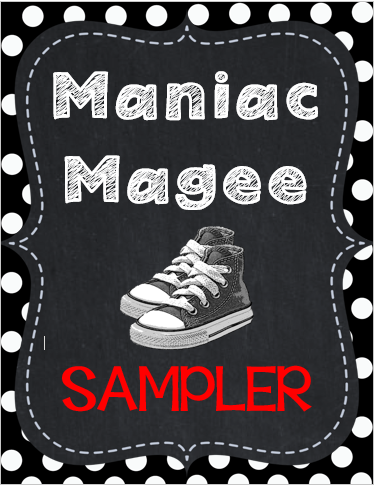Should WRITING be a FOCUS when students are STRUGGLING and only tested in READING?
When people ask me what I do I tell them that I am a 6th grade reading and language arts teacher. I think some people want to chuckle at the thought that I am "teaching" 6th graders to read, but it is in fact what I do! Likely what you do as well, if you are reading my blog!
I don't know about you, but I think I have taught one year out of FIFTEEN, where the majority of my crew has been on-level or above. The other FOURTEEN years have been spent bridging COLOSSAL gaps and helping students find strategies to become successful readers and navigators of text. ...and it is a challenge! With this great challenge comes the idea that something has to give. How can you get kids where they need to be as readers AND make sure they are successful WRITERS?
I have heard some say that they shy away from the writing component in order to meet student reading needs. As a teacher-mom, I always fall back to the "What would I hope someone would be doing for my child?" ...and that thought makes me work a bit harder and step it up that much more to make sure I am doing everything in my power to make my students successful readers AND writers.
So here is what I do to work to make the reading and writing components go hand-in-hand:
1. When we are working our way through a novel, I create novel units where my focus is having my students answer extended response questions and really honing in on making sure those responses: cite evidence from the text, answer all parts of the question, utilize correct grammar, capitalization, punctuation, and spelling. Click the image below for a sampler of a novel unit I created for Maniac Magee. You will find a few extended response questions as well as a journal prompt for post-reading work.
2. I utilize, create, and/or develop end of novel projects that give my students an opportunity to write narratives in order to work on fictional writing. Pictured below is an end of novel project for Crash by Jerry Spinelli. Students had to complete an entire organizer with story elements and then determine the one character they wish they could spend more time with, and what they would do with that character if they could be transported into the novel. They must write three different narratives about three different things they did with that particular character. They then illustrate each narrative and it gets turned into a "book" titled, My Day With..."
3. We focus on journal writing twice a week. After we journal, we share our work with a partner for Read to Someone or we share it aloud to the whole class. My favorite is when a student stops mid-sentence after reading a mistake, says, "Hold on!" to fix that error, and then goes right on reading what they have written so the class can continue to enjoy their journal response. Here is a sample and a resource that I created because I could not find any journaling tool that contained topics/prompts my upper elementary students wanted to respond to...
So these are a few of the ways that I keep the writing CONSISTENTLY happening in my classroom. While we do formal writing with brainstorming, drafting, revising, editing, and publishing, this is the way I make reading and writing go hand-in-hand! I DO believe that struggling readers need to work on writing because good readers, write and good writers, read! I would love to hear about any tools you utilize and how reading and writing are most effectively taught in your learning environment.








2 Comments:
Oh Erin! We are two peas in a pod! You expressed beautifully the way I run my room. I am a reading specialist working with 4th and 5th, and it's amazing to me how much the children love to write if you tie it to other learning. They love making projects too, and I think that's one reason interactive notebooks work so well. They solidify the learning. Email me when you get my comment. I want to ask you about joining The Reading Crew (a facebook group for reading teachers, specialists, and coaches.).
Carla @ Comprehension Connection
Yay, Carla! I love connecting with other educators in the same boat! I am emailing you now and I am a new blog follower!
Post a Comment
Subscribe to Post Comments [Atom]
<< Home